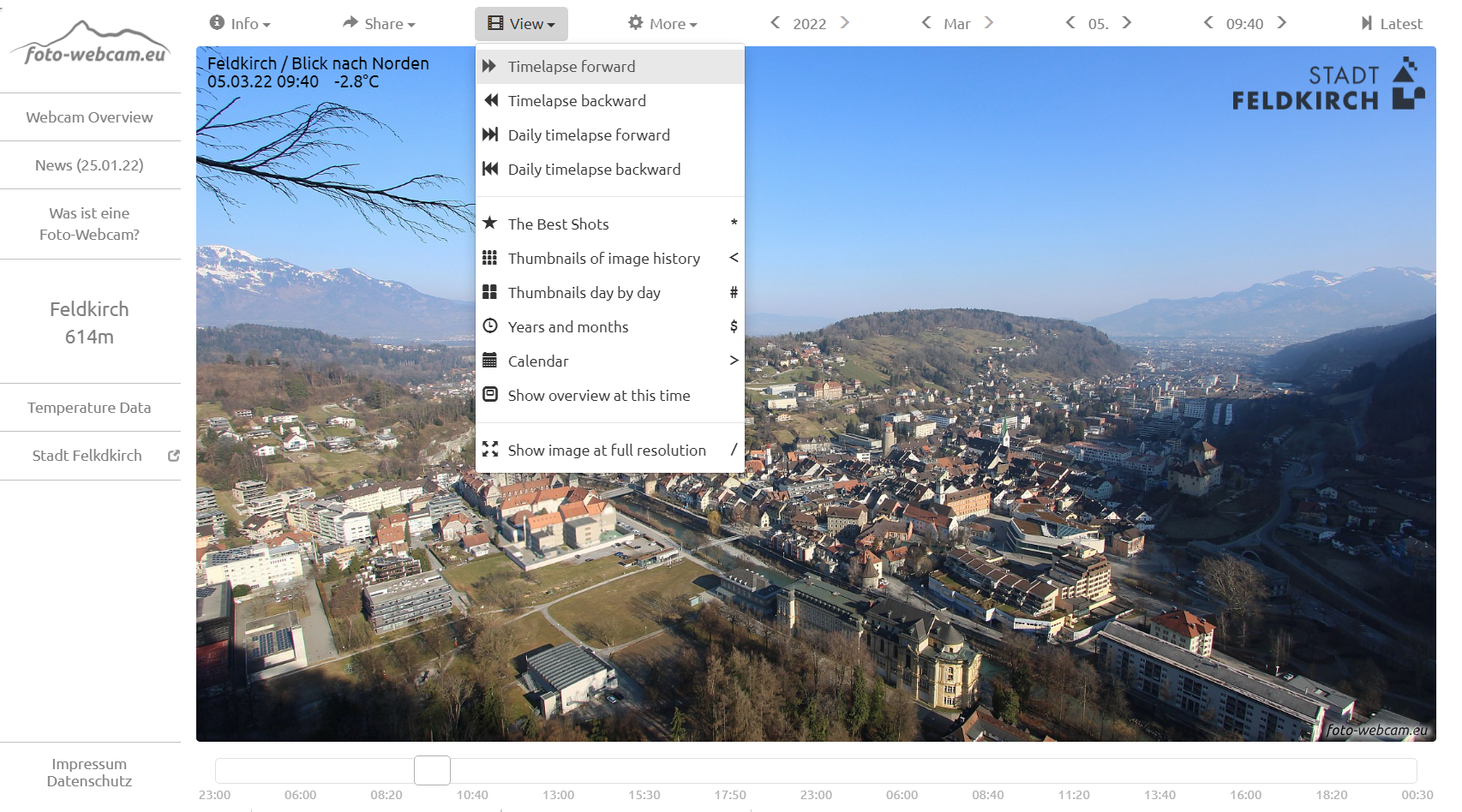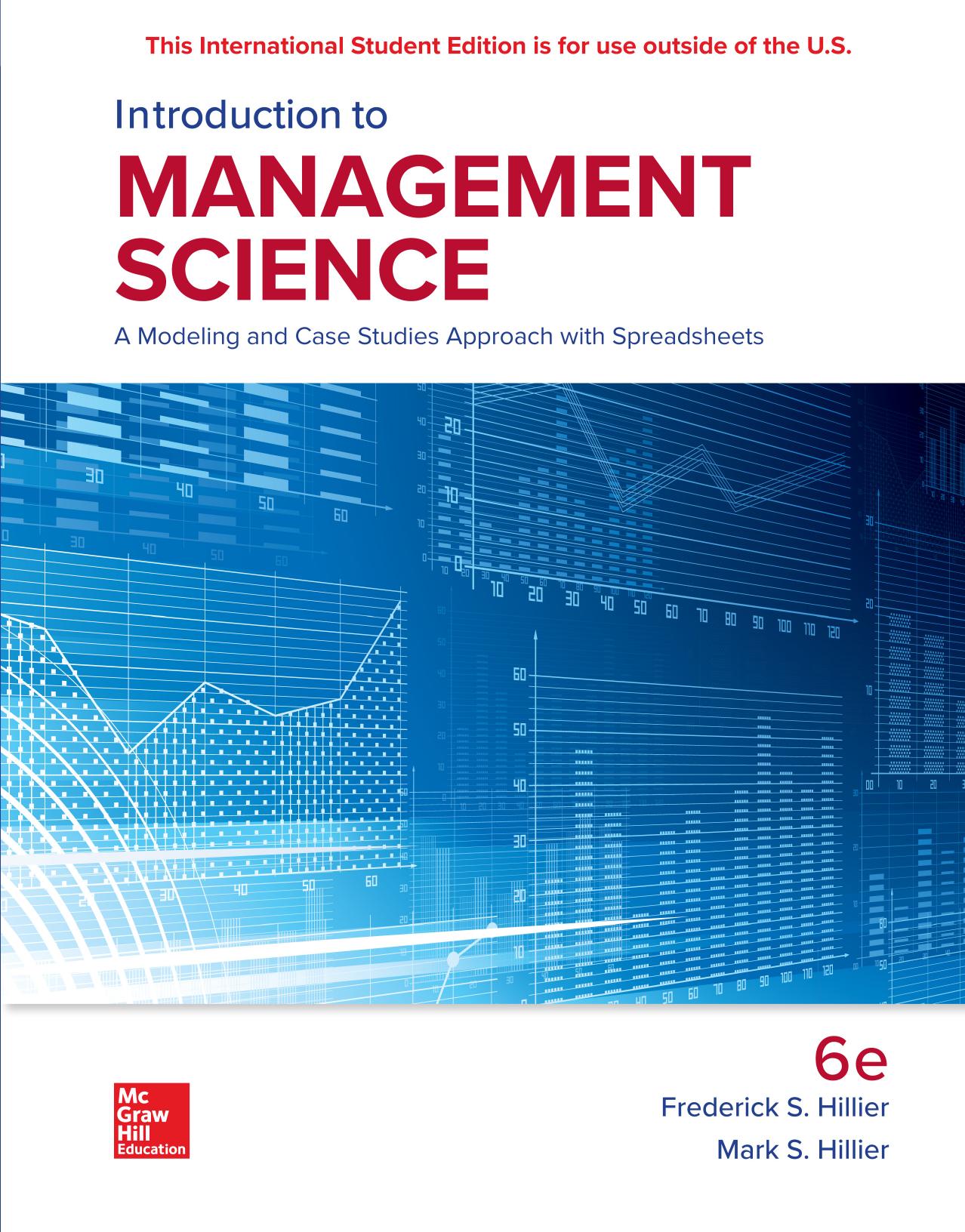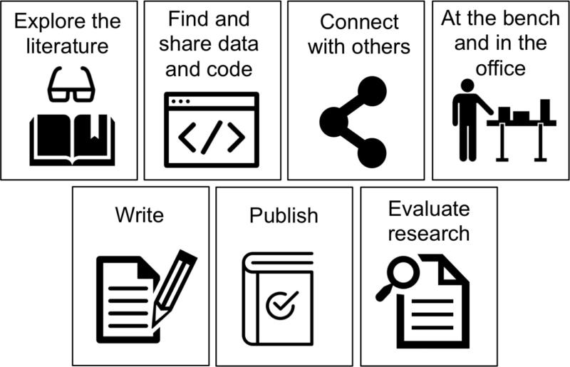- 文章信息
- 作者: kaiwu
- 点击数:930

The Best Shots
https://www.foto-webcam.eu/webcam/bestof/



Feldkirch March 5, 2022 from 6:30 a.m. to 7:00 p.m.
https://www.foto-webcam.eu/webcam/feldkirch/2022/03/06/1400
6:30 a.m.

6:50 a.m.

7:10 a.m.

7:30 a.m.

7:50 a.m.

9:00 a.m.

10:00 a.m.

11:00 a.m.

12:00 a.m.

1:00 p.m.

2:00 p.m.

3:00 p.m.

4:00 p.m.

5:00 p.m.

6:00 p.m.

6:30 p.m.

6:40 p.m.

6:50 p.m.

7:00 p.m.

- 文章信息
- 作者: kaiwu
- 点击数:751
R Notebook
import library
library(lpSolveAPI)
define the datasets
https://civil.colorado.edu/~balajir/CVEN5393/R-sessions/sess1/lpSolveAPI-vignettes.pdf
https://www.r-bloggers.com/2012/07/linear-programming-in-r-an-lpsolveapi-example/
Hillier, F. S., & Hillier, M. S. (2019). Introduction to management science: A modeling and case studies approach with spreadsheets (6th). McGraw-Hill Education.pp26-47

A new lpSolve linear program model object with m constraints and n decision variables can be created using the make.lp function. For example, the following command creates an lpSolve linear program model object with 3 constraints and 2 decision variables.
create an LP model with 3 constraints and 2 decision variables
my.lp <- make.lp(3, 2)hours<-data.frame(plant=c('plant1','plant2','plant3'), door_hours=c(1,0,3), window_hours=c(0,2,2),avaible_hours=c(4,12,18)) set.column(my.lp, 1, hours$door_hours)
set.column(my.lp, 2, hours$window_hours)set.constr.type(my.lp, rep("<=", 3))set.objfn(my.lp, c(300, 500))RowNames <- c("plant1", "plant2", "plant3")
ColNames <- c("door", "window")
dimnames(my.lp) <- list(RowNames, ColNames)set.rhs(my.lp, hours$avaible_hours)
set.type(my.lp, c(1,2), "integer")
lp.control(my.lp,sense='max')## $anti.degen
## [1] "fixedvars" "stalling"
##
## $basis.crash
## [1] "none"
##
## $bb.depthlimit
## [1] -50
##
## $bb.floorfirst
## [1] "automatic"
##
## $bb.rule
## [1] "pseudononint" "greedy" "dynamic" "rcostfixing"
##
## $break.at.first
## [1] FALSE
##
## $break.at.value
## [1] 1e+30
##
## $epsilon
## epsb epsd epsel epsint epsperturb epspivot
## 1e-10 1e-09 1e-12 1e-07 1e-05 2e-07
##
## $improve
## [1] "dualfeas" "thetagap"
##
## $infinite
## [1] 1e+30
##
## $maxpivot
## [1] 250
##
## $mip.gap
## absolute relative
## 1e-11 1e-11
##
## $negrange
## [1] -1e+06
##
## $obj.in.basis
## [1] TRUE
##
## $pivoting
## [1] "devex" "adaptive"
##
## $presolve
## [1] "none"
##
## $scalelimit
## [1] 5
##
## $scaling
## [1] "geometric" "equilibrate" "integers"
##
## $sense
## [1] "maximize"
##
## $simplextype
## [1] "dual" "primal"
##
## $timeout
## [1] 0
##
## $verbose
## [1] "neutral"my.lp## Model name:
## door window
## Maximize 300 500
## plant1 1 0 <= 4
## plant2 0 2 <= 12
## plant3 3 2 <= 18
## Kind Std Std
## Type Int Int
## Upper Inf Inf
## Lower 0 0solve(my.lp)## [1] 0#this return the proposed solution
get.objective(my.lp)## [1] 3600get.variables(my.lp)## [1] 2 6get.constraints(my.lp)## [1] 2 12 18
- 文章信息
- 作者: kaiwu
- 点击数:15979
R Notebook
import library
library(lpSolveAPI)define the data sets
A new lpSolve linear program model object with m constraints and n decision variables can be created using the make.lp function. For example, the following command creates an lpSolve linear program model object with 3 constraints and 2 decision variables.
create an LP model with 3 constraints and 2 decision variables
my.lp <- make.lp(7, 7)#每周连休2天
work<-data.frame(weekday1=c(0,0,1,1,1,1,1), weekday2=c(1,0,0,1,1,1,1),weekday3=c(1,1,0,0,1,1,1),weekday4=c(1,1,1,0,0,1,1),weekday5=c(1,1,1,1,0,0,1),weekday6=c(1,1,1,1,1,0,0),weekday7=c(0,1,1,1,1,1,0),week_need=c(4,8,8,7,7,6,5))#每周休1天
#work<-data.frame(weekday1=c(0,1,1,1,1,1,1), weekday2=c(1,0,1,1,1,1,1),weekday3=c(1,1,0,1,1,1,1),weekday4=c(1,1,1,0,1,1,1),weekday5=c(1,1,1,1,0,1,1),weekday6=c(1,1,1,1,1,0,1),weekday7=c(1,1,1,1,1,1,0),week_need=c(4,8,8,7,7,6,5))for (i in 1:7){
set.column(my.lp, i, work[,i])
}set.constr.type(my.lp, rep(">=", 7))set.objfn(my.lp, c(1,1,1,1,1,1,1))RowNames <- c("Sunday", "Monday", "Tuesday","Wednesday", "Thursday", "Friday","Saturday")
ColNames <- c("team_Sunday", "team_Monday", "team_Tuesday","team_Wednesday", "team_Thursday", "team_Friday","team_Saturday")
dimnames(my.lp) <- list(RowNames, ColNames)set.rhs(my.lp, work[,8])
set.type(my.lp, c(1:7), "integer")
lp.control(my.lp,sense='min')## $anti.degen
## [1] "fixedvars" "stalling"
##
## $basis.crash
## [1] "none"
##
## $bb.depthlimit
## [1] -50
##
## $bb.floorfirst
## [1] "automatic"
##
## $bb.rule
## [1] "pseudononint" "greedy" "dynamic" "rcostfixing"
##
## $break.at.first
## [1] FALSE
##
## $break.at.value
## [1] -1e+30
##
## $epsilon
## epsb epsd epsel epsint epsperturb epspivot
## 1e-10 1e-09 1e-12 1e-07 1e-05 2e-07
##
## $improve
## [1] "dualfeas" "thetagap"
##
## $infinite
## [1] 1e+30
##
## $maxpivot
## [1] 250
##
## $mip.gap
## absolute relative
## 1e-11 1e-11
##
## $negrange
## [1] -1e+06
##
## $obj.in.basis
## [1] TRUE
##
## $pivoting
## [1] "devex" "adaptive"
##
## $presolve
## [1] "none"
##
## $scalelimit
## [1] 5
##
## $scaling
## [1] "geometric" "equilibrate" "integers"
##
## $sense
## [1] "minimize"
##
## $simplextype
## [1] "dual" "primal"
##
## $timeout
## [1] 0
##
## $verbose
## [1] "neutral"my.lp## Model name:
## team_Sunday team_Monday team_Tuesday team_Wednesday team_Thursday team_Friday team_Saturday
## Minimize 1 1 1 1 1 1 1
## Sunday 0 1 1 1 1 1 0 >= 4
## Monday 0 0 1 1 1 1 1 >= 8
## Tuesday 1 0 0 1 1 1 1 >= 8
## Wednesday 1 1 0 0 1 1 1 >= 7
## Thursday 1 1 1 0 0 1 1 >= 7
## Friday 1 1 1 1 0 0 1 >= 6
## Saturday 1 1 1 1 1 0 0 >= 5
## Kind Std Std Std Std Std Std Std
## Type Int Int Int Int Int Int Int
## Upper Inf Inf Inf Inf Inf Inf Inf
## Lower 0 0 0 0 0 0 0solve(my.lp)## [1] 0#this return the proposed solution
get.objective(my.lp)## [1] 10get.variables(my.lp)## [1] 2 0 0 3 0 4 1get.constraints(my.lp)## [1] 7 8 10 7 7 6 5
- 文章信息
- 作者: kaiwu
- 点击数:2821
http://connectedresearchers.com/online-tools-for-researchers/
2021-1-15
Digital tools for researchers
Find out how digital tools can help you



-
BibSonomy – Share bookmarks and lists of literature.
-
Biohunter – Portal with literature search, data statistics, reading, sorting, storing, field expert identification and journal finder.
-
CaptoMe – Metadata platform with rich biomedical content and information management tools for well-organized research.
-
CiteUlike – Search, organize, and share scholarly papers.
-
Colwiz – Create citations and bibliography and set up your research groups on the cloud to share files and references.
-
ContentMine – Uses machines to liberate 100,000,000 facts from the scientific literature.
-
Data Elixir – A weekly collection of the best data science news, resources, and inspirations from around the web.
-
DeepDyve – Instant access to the journals you need.
-
Delvehealth – A data collection of global clinical trials, clinical trial investigator profiles, publications and drug development pipelines.
-
EvidenceFinder – Enriches your literature exploration by suggesting questions alongside your search results. (blog post)
-
F1000Prime – Leading biomedical experts helping scientists to discover, discuss and publish research.
-
Google Scholar – Provides a way to broadly search for scholarly literature across disciplines and sources.
-
LazyScholar – Chrome extension to help your literature search.
-
LiteracyTool – Educational web-platform helping with the discovery, understanding, and exploration of your scientific topics of interest.
-
Mendeley – A unique platform comprising a social network, reference manager, article visualization tools.
-
Microsoft Academic Search – Find information about academic papers, authors, conferences, journals, and organizations from multiple sources.
-
MyScienceWork – Diffuse scientific information and knowledge in a free and accessible way.
-
Nowomics – Follow genes, proteins and processes to keep up with the latest papers and data relevant to your research.
-
Paperity – Aggregator of open access papers and journals
-
Paperscape – Visualise the arXiv, an open, online repository for scientific research papers.
-
PubNiche – A scientific research news curator.
-
PubPeer – Search for publications and provide feedback and/or start a conversation anonymously.
-
ReadCube – Read, manage & discover new literature.
-
Research Professional– Source of intelligence on funding opportunities and research policy.
-
Scicurve – Transforms systematic literature review into interactive and comprehensible environment.
-
Sciencescape – Innovation in the exploration of papers and authors.
-
Scientific Journal Finder (SJFinder) – A collection of tools including a journal search engine and rating which recommends a list of journals based on title and abstract of scientific manuscript, website builder, .(blog post)
-
SciFeed – Uses various data sources and natural language processing to identify important new scientific advances.
-
SciVal Funding – Comprehensive source of funding information.
-
Sparrho – Personalized recommendation engine for science – allowing you to keep a bird’s eye view on all things scientific.
-
SSRN – Multi-disciplinary online repository of scholarly research and related materials in social sciences.
-
Stork – Notifies users new publications and grants based on the users’ own keywords.
-
Symplur – Connecting the dots in healthcare social media.
-
Wiki Journal Club – Open, user-reviewed summaries of the top studies in medical research.
-
Zotero – Helps you collect, organize, cite, and share your research sources.
-
ACS ChemWorx – Collaborative reference manager coupled with tools and services for authors.
-
Colwiz – Create citations and bibliography and set up your research groups on the cloud to share files and references.
-
eLife Lens – Provides for researchers, reviewers, authors and readers a novel way of looking at online content.
-
Elsevier “Article of the Future”– Aims to revolutionize the format of the academic paper in regard to presentation, content and context.
-
Interactive Science Publishing– Allows authors to publish large datasets with original source data that can be viewed interactively by readers.
-
Mendeley – A platform comprising a social network, reference manager, article visualization tools.
-
PaperHive – Simplifying research communication and introducing new ways of collaboration through in-document discussions.
-
PubReader– Alternative web presentation that offers another, more reader-friendly way to read literature in PMC and Bookshelf.
-
ReadCube – Read, manage & discover new literature.
-
Utopia Docs– Pdf reader that connects the static content of scientific articles to the dynamic world of online content.
-
Wiley Anywhere Article – Enhanced HTML article from Whiley publisher.
-
Wiley Smart Article – Enhanced article tools for chemistry content in Whiley journals.


-
BioLINCC – Clinical specimen database.
-
Code Ocean – Cloud-based computational platform which provides a way to share, discover and run published code.
-
ContentMine – Uses machines to liberate 100,000,000 facts from the scientific literature.
-
DataBank – Analysis and visualisation tool that contains collections of time series data on a variety of topics.
-
DataCite – Establish easier access to research data by providing persistent identifiers for data.
-
DataHub – Publish or register datasets, create and manage groups and communities
-
Dataverse Network – Harvard-based tool to share, cite, reuse and archive research data.
-
Delvehealth – A data collection of global clinical trials, clinical trial investigator profiles, publications and drug development pipelines.
-
Deveo – Free, private Git, Mercurial, and SVN repository management platform.
-
Dryad– Data repository for any files associated with any published article in the sciences or medicine.
-
Figshare – Manage your research in the cloud and control who you share it with or make it publicly available and citable
-
GenBank – Gene sequence database provided by the National Center for Biotechnology Information.
-
GitHub – Online software project hosting using the Git revision control system.
-
How Can I Share It – Find information and tools to ensure your articles can be shared with your colleagues quickly and easily.
-
Nowomics – Follow genes, proteins and processes to keep up with the latest papers and data relevant to your research.
-
Open Science Framework – Gathers a network of research documents, a version control system, and a collaboration software.
-
Peer Evaluation – Open repository for data, papers, media coupled with an open review and discussion platform.
-
Quip – Combines chat, documents, spreadsheets, checklist, and more to collaborate on any device.
-
re3data – Global registry of research data repositories.
-
Research Compendia – Tools for researchers to connect their data, code and computational methods to their published research
-
SlideShare – Community for sharing presentations and other professional content
-
Zenodo – A home for the long-tail of science, enabling researchers to share and preserve any research outputs.

-
Academia – A place to share and follow research and researchers.
-
AcademicJoy – Share research ideas and story in research and innovation.
-
Addgene – Connect with other researchers through this plasmid sharing platform.
-
AssayDepot – Pharmaceutical marketplace for life science research services.
-
Benchling – Life science data management and collaboration platform.
-
BiomedUSA – Global open access hub for sharing and licensing of Biological Research Materials and related technologies.
-
Biowebspin – Platform in life science worldwide to networks, work, look up information.
-
Cureus – A free and open access the medical journal and a place for physicians to build a digital CV.
-
Direct2experts – A federated network of biomedical research expertise.
-
Expertnet – Helps you locate experts in Florida universities.
-
GlobalEventList – A comprehensive directory of scientific events worldwide.
-
Innocentive – Helps clients to engage a world of creative and diverse on-demand talent to rapidly generate novel ideas and solve important problems.
-
Journal of Brief Ideas – Provides a place for short ideas to be described – in 200 words or less -, archived, searchable and citable.
-
LabRoots – Social network for researchers.
-
LabsExplorer – Search for R&D partners, increase your visibility and gain financing.
-
LifeScience.net – Online platform for professional networking and sharing of knowledge in life sciences.
-
Linkedin – Professional networking site for all.
-
Loop – Open, cross-platform network for researchers and academics from the Frontiers journals.
-
MalariaWorld – The world’s scientific and social network for malaria professionals.
-
Mendeley – A unique platform comprising a social network, reference manager, article visualization tools
-
MyScienceWork – Diffuse scientific information and knowledge in a free and accessible way.
-
nanoHUB – Centralized platform for computational nanotechnology research, education, and collaboration.
-
Open Science Framework – Gathers a network of research documents, a version control system, and a collaboration software.
-
Piirus – Helps researchers meet potential collaborators, build networks and develop their core research.
-
Profeza – Showcasing the unvalued work behind each article to provide new, more accurate way of evaluating researchers.
-
Profology – A professional community created exclusively for higher education faculty, staff and administrators.
-
Research Connection – A searchable platform for research jobs and information.
-
ResearchGate – Social network for researchers.
-
ScienceExchange – Marketplace for shared lab instrumentations. (blog post)
-
SocialScienceSpace – Social network to bring for social scientists.
-
Speakezee– Bringing speakers and audiences together.
-
We Share Science – A place to share, search, organize, and connect research videos across research disciplines.
-
AcademicJoy – Sharing research ideas and story in research and innovation.
-
AcaWiki– Summarizing academia and quasi-academia, one document at a time.
-
Animate Science – Helps scientists get their work noticed by their peers and the general public using visual media.
-
PubDraw – Take science articles, make pictures.
-
I Am Scientist – A science outreach education and engagement activity.
-
Kudos – Helps researchers explain, enrich and share their publications for greater research impact.
-
nanoHUB – Centralized platform for computational nanotechnology research, education, and collaboration.
-
Science Simplified – A science communication portal aiming to aggregate all academic public releases and serve as a direct communication channel with the general public.
-
SciWorthy – A science news site for the everyday person to better understand science.
-
Speakezee– Bringing speakers and audiences together.
-
Useful Science – Summaries of the latest science useful in life.
-
We Share Science – A place to share, search, organize, and connect research videos across research disciplines.
-
Innocentive – Helps clients to engage a world of creative and diverse on-demand talent to rapidly generate novel ideas and solve important problems.
-
Kaggle – Platform for data prediction competitions.
-
Patient Innovation – Nonprofit, international, multilingual, free venue for patients and caregivers of any disease to share their innovations.
-
Project Noah – Explore and document wildlife on this citizen scientists platform.
-
SciStarter – Find, join, and contribute to science through recreational activities and citizen science research projects.
-
Zooniverse – Citizen science projects using the efforts and ability of volunteers to help scientists and researchers.
-
Benefunder – Facilitates connections with top researchers who are working on breakthrough discoveries that are impacting our world.
-
Consano – Research crowdfunding site to directly support innovative medical research that matters to you
-
Experiment – Crowdfunding Platform for Scientific Research.
-
My Projects – Donate to the research work that means the most to you.
-
SciFlies – Allows anyone, anywhere to directly support research they care about.
-
Thinkable – Platform to mobilize knowledge and fund breakthrough ideas.

-
1degreebio – Reagent marketplace.
-
Antibody Registry – Gives researchers a way to universally identify antibodies used in in the course of their research.
-
Asana – Keeps your team organized, connected, and focused on results.
-
Biocompare – Find products, read reviews and hear about the latest technological developments.
-
ELabInventory – Web-based laboratory inventory management system designed for life science research laboratories.
-
ELabJournal – GLP-compliant Electronic Lab Notebook and lab management tool.
-
LabCritics – Provides researchers with a trust-able source of lab equipment reviews and comparisons.
-
LabGuru – Supports day to day activities of a research group, from vision to execution, from knowledge to logistics.
-
Lab Suit – Inventory Management, orders Management, materials Trade-In, price Comparison.
-
Life technologies Lab Management Tool– Management tool for lab equipment and services.
-
LiveLabSpace – Collaborative research tool that lets you plan experiments, replicate outcomes and generate research papers.
-
Open Science Framework – Gathers a network of research documents, a version control system, and a collaboration software.
-
Ovation – Simplifies your scientific life from sample tracking for startup labs to data management.
-
Quartzy – A free and easy way to manage your lab.
-
Quip – Combines chat, documents, spreadsheets, checklist, and more to collaborate on any device.
-
Riffyn – Cloud software for visual, collaborative, reproducible innovation.
-
StrainControl – Lab management tools that allows you to organize strains, plasmids, oligos, antibodies, chemicals and inventorie.
-
Synapse – Platform to support open, collaborative data analysis for clear, reproducible science
-
Docollab – Helps you manage your scientific research, collaborate with your colleagues and publish your findings.
-
elabftw – Electromic lab notebook made by researchers, for researchers, with usability in mind.
-
ELabJournal – GLP-compliant Electronic Lab Notebook and lab management tool.
-
Evernote – A place to collect inspirational ideas, write meaningful words, and move your important projects forward.
-
Findings App – Lab notebook app that allows to organize your experiments, keep track of results, and manage your protocols.
-
Hivebench – Hosted numeric laboratory notebook tool to manage protocols, experiments and share them with your team.
-
LabArchives – Web-based product to enable researchers to store, organize, and publish their research data.
-
LabGuru – Supports day to day activities of a research group, from vision to execution, from knowledge to logistics.
-
Laboratory Logbook – Document projects running in a lab and manage experimentally obtained data and its metadata.
-
Sumatra – Automated electronic lab notebook for computational projects.
-
Emerald Cloud Lab – A web-based life sciences lab, developed by scientists for scientists.
-
ScienceExchange – Marketplace for shared lab instrumentations. (blog post)
-
TetraScience – Allows you to monitor & manage your experiments from anywhere.
-
Transcriptic – A remote, on-demand robotic life science research lab with no hardware to buy or software to install.
-
BioBright – Provide a better understanding of experimental conditions by connecting sensors to instruments. (blog post)
-
Addgene – Plasmid sharing platform
-
Antibody Registery – Gives researchers a way to universally identify antibodies used in in the course of their research.
-
antYbuddY – An independent antibody review platform and supporting peer-to-peer forum.
-
Biospecimens – Platform for biospecimen-based research.
-
Duke human heart– Repository for cardiovascular research scientists, including tissues samples and information.
-
ELabInventory – Web-based laboratory inventory management system designed for life science research laboratories.
-
Nanosupply – Platform facilitating sourcing and sharing of advanced materials for research and education.
-
Sample of Science – Peer-Sharing Platform for Scientific Samples. (blog post)
-
Benchfly – Video protocols and video platform for scientists.
-
Benchling – Life science data management and collaboration platform, where you can create, find, and discuss protocols.
-
Bio-Protocol– Online peer-reviewed protocol journal.
-
IPOL journal– Research journal of image processing and image analysis with algorithm descriptions and its source code.
-
MyExperiment – Share workflows and in silico experiments.
-
OpenWetWare – Share information, know-how, wisdom, and protocols among researchers working in biological fields.
-
Pegasus – Platform that help workflow-based applications execute.
-
Protocol Exchange – Open protocol repository driven my the Nature Publishing group.
-
Protocol online – A curator of protocols contributed by researchers arounds the world.
-
Scientific Protocols – Share scientific protocols using the GitHub platform.
-
CDE Tool– Deploy and run your Linux programs on other machines without any installation or configuration.
-
Dexy – Helps your code to speak for itself with beautiful syntax highlighting.
-
GitLab – A git repository management, code reviews, issue tracking and wiki’s all in one platform.
-
iPython notebook – Interactive computational environment that allows code execution, text, mathematics, plots, and rich media.
-
Kepler – Helps create, execute, and share models and analyses across scientific and engineering disciplines.
-
Mercurial – Control management tool with distributed source, giving each developer a local copy of the development history.
-
nanoHUB – Centralized platform for computational nanotechnology research, education, and collaboration.
-
ROpenSci – Packages that allow access to data repositories through the R statistical programming environment.
-
Sweave – Allows to embed the R code for complete data analyses in latex documents
-
System in Cloud – Platform, enabling clients to rapidly draw and execute data-flow diagram that run in cloud.
-
Benchling – Life science data management and collaboration platform.
-
Castor EDC – User friendly and affordable online data collection for medical research.
-
Datazar – Research collaboration platform where you can easily explore, use and share data.
-
Dat data – Open source, decentralized data tool for distributing datasets small and large.
-
Delve Health – Comprehensive source of real-time intelligence focused on life science research industry.
-
Galaxy Project– Web-based platform for data intensive biomedical research.
-
GenePattern – Genomic analysis platform that provides access to hundreds of genomics tools.
-
TwistBioscience -Silicon-based DNA writing platform that provides access to high quality oligonucleotides, genes and libraries.
-
InSIlico DB – Genomics made possible for biologists without programming.
-
Kaggle – Patform for data prediction competitions.
-
Kitware – Advanced software solutions and services for data intensive R&D
-
mloss – Machine learning open source software.
-
MyExperiment – Share workflows and in silico experiments
-
nanoHUB – Centralized platform for computational nanotechnology research, education, and collaboration.
-
OMICtools – A manually curated metadatabase of genomics, transcriptomics, proteomics and metabolomics.
-
Ovation – Simplifies your scientific life from sample tracking for startup labs to data management.
-
PCR Drive – Free platform that supports researchers in all their PCR-related processes.
-
Pegasus – Platform that help workflow-based applications execute.
-
Plotly – Online tool to graph and share data.
-
Riffyn – Cloud software for visual, collaborative, reproducible innovation.
-
ROpenSci – Packages that allow access to data repositories through the R statistical programming environment.
-
Statcrunch – Provides data analysis via the Web.
-
Sumatra – Automated electronic lab notebook for computational projects
-
SURF In context – Navigate through RDF relations in a smooth and understandable way.
-
Sweave – Allows to embed the R code for complete data analyses in latex documents.
-
Synapse – Platform to support open, collaborative data analysis for clear, reproducible science.
-
System in Cloud – Platform, enabling clients to rapidly draw and execute data-flow diagram that run in cloud.
-
Tableau – Easily and quickly analyze and present data and share insights.
-
Taverna – A suite of tools used to design and execute scientific workflows.
-
VisTrails – Scientific workflow and provenance management system that supports data exploration and visualization.
-
Wakari – Web-based python data analysis.
-
WebPlotDigitizer – Web based tool to extract data from plots, images, and maps. (blog post)
-
Wings – Semantic workflow system that assists scientists with the design of computational experiments.
-
Wolfram Alpha – Web-based tools for scientific calculations.
-
World Map – Allows users to explore, visualize, edit, collaborate with, and publish geospatial information.
-
Grant Forward – Search engine for research grants.
-
Instrumentl – Grant database and search tool that learns about specific research projects and then matches them with the best grants available.
-
Pivot COS – A database which includes funding opportunities from all disciplines.
-
Publiconn – Social network for organisations which are users of public or private donor funding and those organisations that provide funding.

-
ACS ChemWorx – Collaborative reference manager coupled with tools and services for authors.
-
CitationStyles – Find and edit CSL citation styles.
-
Citavi – Reference management, knowledge organization, and task planning solution.
-
CiteUlike – Search, organize, and share scholarly papers.
-
Colwiz – Create citations and bibliography and set up your research groups on the cloud to share files and references.
-
EndNote– Software tool for publishing and managing bibliographies, citations and references
-
F1000 workspace – A workspace for scientists to collect, write and discuss scientific literature.
-
Mendeley – A unique platform comprising a social network, reference manager, article visualization tools.
-
Papers – Helps you collect and curate the research material that you’re passionate about.
-
Zotero – Helps you collect, organize, cite, and share your research sources
-
ASCII doctor– Text processor & publishing toolchain for converting AsciiDoc to HTML5, DocBook & more.
-
Atlas – Write, collaborate, design and publish on a single platform.
-
Authorcafe – Authoring and Publishing Services platform for scholarly writing.
-
Draft – Version control and collaboration to improve your writing.
-
F1000 workspace – A workspace for scientists to collect, write and discuss scientific literature.
-
Fidus Writer – Online collaborative editor especially made for academics who need to use citations and/or formulas.
-
Overleaf – Online collaborative LaTeX editor, with direct submission to several publishers (ex WriteLaTex)
-
Pensoft Writing Tool – Collaborative authoring, reviewing and publishing in one place.
-
Poetica – Get clear feedback, wherever you’re writing.
-
ShareLaTex – Collaborative on-line editor for for Maths or Sciences.
-
Stackedit – Markdown editor based on PageDown, the Markdown library used by Stack Overflow.
-
Typewrite – A simple, real-time collaborative writing environment.
-
Quip – Combines chat, documents, spreadsheets, checklist, and more to collaborate on any device.
-
Write – Distraction-free text editor for writing productivity.
-
Ludwig – Helps you improve your English writing by comparing your words with those found on trusted sources such as the New York Time or the BBC.
-
Ref-n-Write – Microsoft Word Add-in that helps you improve your English writing skills.

-
eLife – Open access to the most promising advances in science.
-
F1000Research – Open science publishing, using immediate publication followed by transparent peer review.
-
GigaScience – Online open-access open-data journal that publishes ‘big-data’ studies from the life and biomedical sciences.
-
Limn – Free journal that outlines contemporary problems.
-
PeerJ – Open access pre-print and publishing of life science research with annotation.
-
Cureus – A free and open access the medical journal and a place for physicians to build a digital CV.
-
ScienceOpen – Freely accessible research network to share and evaluate scientific information.
-
The Winnower – Open access online science publishing platform that employs open post-publication peer review.
-
ArXiv – E-prints in Physics, Mathematics, Computer Science, Quantitative Biology, Quantitative Finance and Statistics.
-
biorXiv – The preprint server for Biology.
-
F1000 – Leading biomedical experts helping scientists to discover, discuss and publish research.
-
Figshare – Manage your research in the cloud and control who you share it with or make it publicly available and citable.
-
Peer Evaluation – Open repository for data, papers, media coupled with an open review and discussion platform.
-
Peerage of Science – Pre-publication peer review and publishing for scientific articles.
-
PeerJ PrePrints– Pre-print repository for the biological and medical Sciences.
-
SlideShare – Community for sharing presentations and other professional content.
-
Zenodo – A home for the long-tail of science, enabling researchers to share and preserve any research outputs.
-
Collage Authoring Environment – Framework for collaborative preparation and publication of so-called executable paper.
-
Exec&Share – Openly share the code and data that underlie your research publications.
-
Google Charts– Create live and interactive charts in your browser.
-
ORCID – Provides a persistent digital identifier that distinguishes you from every other researcher.
-
Cofactor Science Journal Selector – A journal selector from the editing service Cofactor.
-
Edanz’s journal advisor – Personal guide that recommends the tools and services you need to get published.
-
Editorlookup – Search tool to help find scientific professionals for academic tasks, such as editors and reviewers for scientific manuscripts.
-
Journal Finder– Elsevier’s service that help you find journals that could be best suited for publishing your scientific article.
-
Journal Guide – Find the best journal for your research. (blog post)
-
Journal Reviewer – Aggregates information users provide about their experience with academic journals’ review processes.
-
RoMEO – Find out publisher copyright and self-archiving policies.

Peer-review
-
Academic Karma – Review of preprint publication, open and linked to original preprint.
-
F1000 – Leading biomedical experts helping scientists to discover, discuss and publish research.
-
Hypothes.is – Sentence-level peer-review to provide commentary, references, and insight on top of online content.
-
Journal Review – Rate, and review published medical journal articles.
-
Libre – Participative reviewing platform (beta testing).
-
Paper Critic – Review platform for research publications (Mendeley plugin).
-
Peerage of Science– Pre-publication peer review and publishing for scientific articles.
-
PeerJ– Open access pre-print and publishing of life science research with annotation.
-
PubPeer – Search for publications and provide feedback and/or start a conversation anonymously.
-
Publons – Record, showcase, and verify all your peer review activity.
-
Pubmed Commons – Share opinions and information about scientific publications in PubMed. (blog post)
-
ScienceOpen – Freely accessible research network to share and evaluate scientific information.
-
Wiki Journal Club – Open, user-reviewed summaries of the top studies in medical research.
-
The Winnower – Open access online science publishing platform that employs open post-publication peer review.
-
Altmetric – Tracks what people are saying about papers online on behalf of publishers, authors, libraries and institutions.
-
ImpactStory – Share the full story of your research impact. (blog post)
-
PLOS Article-Level Metrics – A suite of established metrics that measure the overall performance and reach of research articles.
-
PlumAnalytics– A research altmetric service tracking more than 20 different types of artifacts.
-
Profeza – Showcasing the unvalued work behind each article to provide new, more accurate way of evaluating researchers.
-
Publons – Record, showcase, and verify all your peer review activity.
- 文章信息
- 作者: kaiwu
- 点击数:774
https://doi.org/10.37741/t.69.1.1
The Influence of Impulsiveness on Local Food Purchase Behavior in a Tourism Context
Guliz Coskun ![]() orcid.org/0000-0002-5200-6370 ; Department of Recreation Management, Faculty of Tourism, Sakarya University of Applied Sciences, Sakarya, Turkey
orcid.org/0000-0002-5200-6370 ; Department of Recreation Management, Faculty of Tourism, Sakarya University of Applied Sciences, Sakarya, Turkey 
William Norman ; Clemson University, College of Behavioral Social and Health Sciences, Faculty of Parks Recreation and Tourism Management, Clemson, South Carolina, USA
|
APA 6th Edition
Coskun, G. & Norman, W. (2021). The Influence of Impulsiveness on Local Food Purchase Behavior in a Tourism Context. Tourism: An International Interdisciplinary Journal, 69 (1), 7-18. https://doi.org/10.37741/t.69.1.1
MLA 8th Edition
Coskun, Guliz and William Norman. "The Influence of Impulsiveness on Local Food Purchase Behavior in a Tourism Context." Tourism: An International Interdisciplinary Journal, vol. 69, no. 1, 2021, pp. 7-18. https://doi.org/10.37741/t.69.1.1. Accessed 7 Apr. 2021.
Chicago 17th Edition
Coskun, Guliz and William Norman. "The Influence of Impulsiveness on Local Food Purchase Behavior in a Tourism Context." Tourism: An International Interdisciplinary Journal 69, no. 1 (2021): 7-18. https://doi.org/10.37741/t.69.1.1
Harvard
Coskun, G., and Norman, W. (2021). 'The Influence of Impulsiveness on Local Food Purchase Behavior in a Tourism Context', Tourism: An International Interdisciplinary Journal, 69(1), pp. 7-18. https://doi.org/10.37741/t.69.1.1
Vancouver
Coskun G, Norman W. The Influence of Impulsiveness on Local Food Purchase Behavior in a Tourism Context. Tourism: An International Interdisciplinary Journal [Internet]. 2021 [cited 2021 April 07];69(1):7-18. https://doi.org/10.37741/t.69.1.1
IEEE
G. Coskun and W. Norman, "The Influence of Impulsiveness on Local Food Purchase Behavior in a Tourism Context", Tourism: An International Interdisciplinary Journal, vol.69, no. 1, pp. 7-18, 2021. [Online]. https://doi.org/10.37741/t.69.1.1
|
